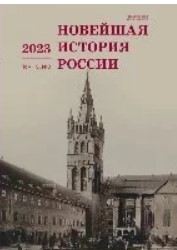О них не любят вспоминать: вторая волна эмиграции из СССР в отечественных исследованиях второго десятилетия XXI в.
They Don’t Like to be Remembered. “Second Wave” of Emigration from the USSR in Domestic Studies of the Second Decade of the 21st Сentury
Author(s): A. V. AntoshinSubject(s): WW II and following years (1940 - 1949), Post-War period (1950 - 1989), History of Communism, Migration Studies, Politics of History/Memory, Asylum, Refugees, Migration as Policy-fields
Published by: Издательство Исторического факультета СПбГУ
Keywords: displaced persons; Russian emigration; second wave; USSR; memory policy; World War II; historiography;
Summary/Abstract: The article is devoted to modern Russian historiography of the problem of the “second wave” of emigration from the USSR. The author characterizes the “politics of memory” in the Russian Federation, connected with the theme of emigration from our country in the 20th century. Analyzed undertaken at the beginning of the 21st century attempts to use the phenomenon of the Russian diaspora in the process of constructing a national ideology. At the same time, it is proved that the main attention was paid to the “first wave” of Russian emigration, primarily to the leaders of the White movement who left our country after the end of the Civil War. The problem of the “second wave” of emigration from the Soviet Union, closely connected with the events of the Second World War, often remained “in the background”. The structure of the article corresponds to the main stages of the “epic” that the emigrants of the “second wave” had a chance to go through. The author pays considerable attention to the coverage of the phenomenon of displaced persons (“DP”) in the scientific literature. It is proved that insufficient attention is paid in the Russian literature to the circumstances of everyday life in the European DP camps. Meanwhile, this factor had a significant impact on the moral and psychological atmosphere in the camps and the values of the Soviet displaced persons. The article also describes the coverage in modern scientific literature of the immigration policy of the Western states in relation to “di-pi”, it is shown that the governments of most countries were only interested in the influx of young able-bodied people who could contribute to the development of the national economy. The role of Soviet displaced persons in the political confrontation of the Cold War era is analyzed.
Journal: Новейшая история России
- Issue Year: 13/2023
- Issue No: 44
- Page Range: 759-774
- Page Count: 16
- Language: Russian

